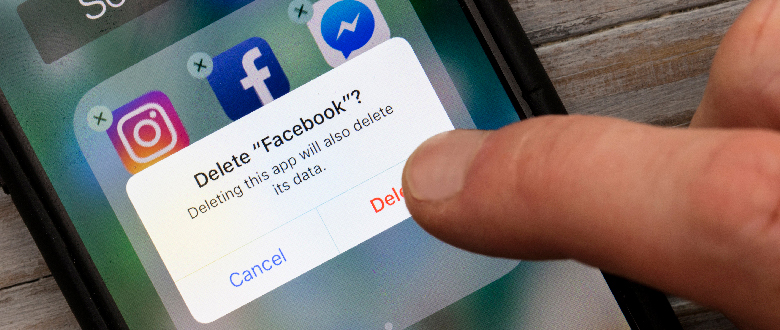A lot of users are no longer so in “Like” with Facebook. Some 42% of Americans 18+ say they have “taken a break” from checking the social media platform for several weeks or more, while 26% have deleted the Facebook app from their cellphone. And 54% have adjusted their privacy settings in the past 12 months, according to a new Pew Research Center survey. In all, 74% of Facebook users say they have taken at least one of these three actions in the past year.
The findings come from a survey of U.S. adults conducted May 29-June 11, following the news that the former consulting firm Cambridge Analytica had collected data on tens of millions of Facebook users without their knowledge.
This Pew data parallels the 2018 Infinite Dial survey, which found that Facebook usage has dropped for the first time in a decade. Usage reached 62% of persons 12+ in 2018, down from 67% in 2017, 64% in 2016, and 62% in 2015. Mind you, Facebook still remains dominant among social media platforms, used “most often” by 57% of those 12+, followed by Snapchat, Instagram, LinkedIn, Pinterest and Twitter.
Facebook has also faced scrutiny from conservative lawmakers and pundits over allegations that it suppresses conservative voices. The Center found that the vast majority of Republicans think that social platforms in general censor political speech they find objectionable. Despite these concerns, the poll found nearly identical shares of Democrats and Republicans use Facebook. Republicans are no more likely than Democrats to have taken a break from Facebook or deleted the app from their phone in the past year.
Pew did find age differences in the share of Facebook users who have recently taken some of these actions. Most notably, 44% of younger users (18 to 29) say they have deleted the Facebook app from their phone in the past year, nearly four times the share of users ages 65 and older (12%) who have done so. Similarly, older users are much less likely to say they have adjusted their Facebook privacy settings in the past 12 months: Only a third of Facebook users 65 and older have done this, compared with 64% of younger users.
In the wake of the revelations about Cambridge Analytica, Facebook updated its privacy settings to make it easier for users to download the data the site had collected about them, Pew explains. The new survey finds that around one-in-ten Facebook users (9%) have downloaded the personal data about them available on Facebook. But despite their relatively small size as a share of the Facebook population, these users are highly privacy-conscious. Roughly half who have downloaded their personal data from Facebook (47%) have deleted the app from their cellphone, while 79% have elected to adjust their privacy settings.
Facebook fatigue is a real problem for a local business trying to advertise their business on social media. There is so much misinformation on the Internet that people no longer trust much of what they see. Consequently, your advertising in social media is met with similar skepticism. People don’t know if they can trust what you are telling them.
If you want to see real advertising results, you need to call your advertising salesperson at your local Radio station. There is no fake users listening to the Radio. All listener metrics are provided by a third party, the Nielsen Company.
Radio listenership is an emotional connection with a person’s “favorite” Radio station. They trust that Radio station because the station plays the music the “love”. They trust the local DJ so they trust what hat DJ says.
Advertising on local Radio wraps your message in a shield of trust, getting through to more people the way you want them to hear it.
Radio is word of mouth advertising. But instead of one person to the next, your local Radio station can talk to tens of thousands of “ears” everytime your commercial comes over the Radio.
If you enjoyed this article, please use the social media icons below to share with your friends. Please leave a comment too.






